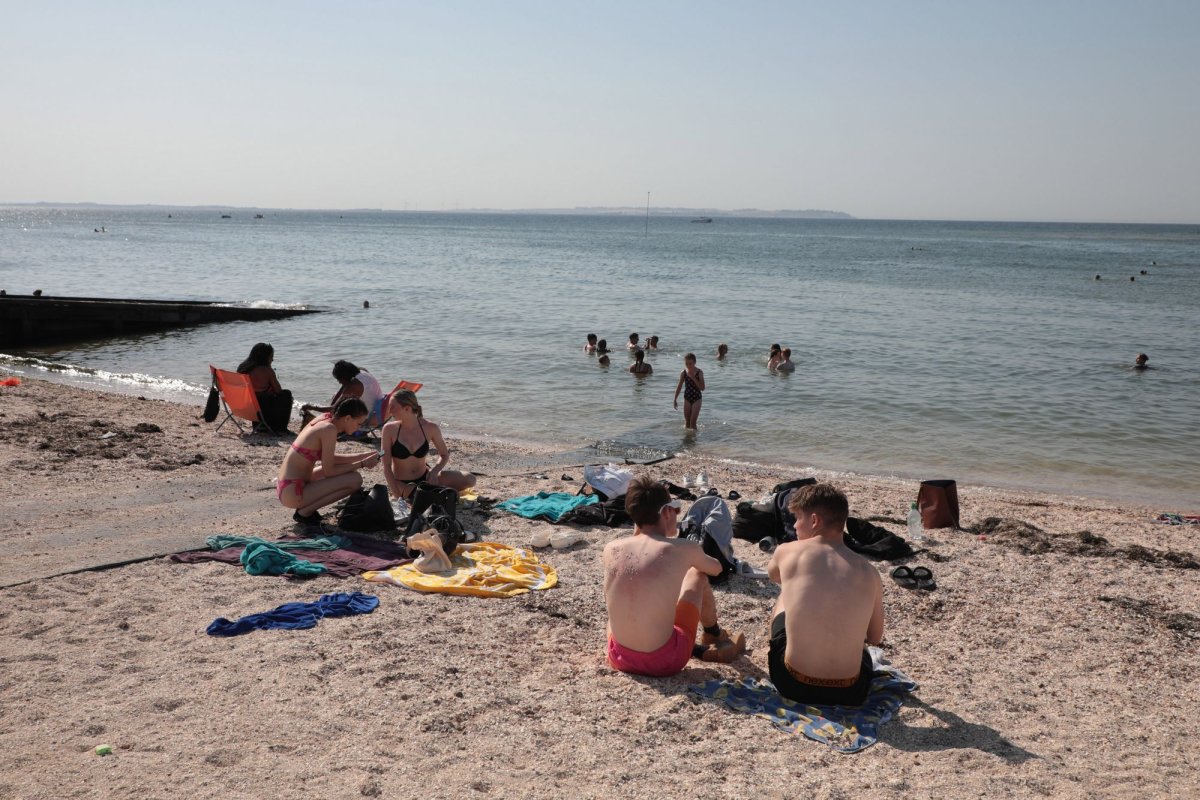Heat Wave: Europe, Africa, and Asia melting due to scorching heat, experts gave a big warning

Heat Wave: Europe, Africa, and Asia melting due to scorching heat, experts gave a big warning
The scorching heat wave is causing havoc in Europe. Fires are raging in forests and runways are melting. After the historically second hottest June ever, Western Europe is now facing the second most dangerous heat wave of this summer. It has been a record-breaking hot week in Britain, Portugal, Spain, and France. Western European temperatures continued to rise on Wednesday, setting new records in Spain and Portugal. The temperature in these countries reached 40°C (104°F). The maximum temperature in Orens in north-western Spain reached an all-time high of 43.2 degrees Celsius on Tuesday, according to the Spanish meteorological agency AEMET.
Nearby, central Portugal recorded a record-breaking maximum temperature of 46.3 degrees Celsius (115.34 degrees Fahrenheit). Temperatures in Lisbon hit 41.4 degrees C in July, a new record. It doesn’t end there, though. Climate change has caused Earth’s climate to warm, which is contributing to the occurrence of heat waves. The future heat wave will be even more frequent and hotter, so we should be prepared.
Linked to climate change is the heat wave
Climate change caused by human activities has been linked to many heat waves in the past. Consequently, human activities will generate more greenhouse gases in the future, increasing the intensity of these heat waves. Climate change has generally increased the risk of extreme heat waves, but an attribution study is necessary to determine the extent of the current heat wave.

This means that cities in Europe can now plan to cool their existing buildings during the summer months. To maintain a cool urban environment, they can increase the green areas along with shade and cooling measures. In Europe, heat will become more frequent as we delay climate action. By making cities cooler today, we are investing in a more sustainable future.

Previously considered rare, heat waves are now commonplace
Dr. Friedrich Otto, co-head of World Weather Attribution at Imperial College London’s Grantham Institute, says climate change is the cause of this heatwave. As he does now with every heat. The burning of fossil fuels such as coal, gas, and oil is causing the heat to become even hotter, longer lasting, and more recurring. It is no longer uncommon to see heatwaves. In addition to coming into existence, the heat is killing people now, which was previously impossible. This has happened in the Pacific Northwest over the past year. In the absence of human-induced warming, this would have been almost impossible.
Otto said that the heat wave will get worse unless greenhouse gas emissions are halted. In the absence of net zero emissions by the end of the century, the heat wave will become hotter and more dangerous. There will be more and longer heat waves like these in the future. Stopping the burning of fossil fuels as soon as possible is the only way to stop the record-breaking heat.
Temperatures in Europe exceed 40 degrees Celsius
According to Julie Arrigi of the Red Cross Red Crescent Climate Center, with temperatures in many parts of Europe crossing 40 degrees Celsius, it seems that everyone is in danger, but some are in even greater danger. The elderly should be given priority. The elderly and the lonesome are especially at risk. Besides pregnant women and young children, homeless and heat-sensitive people are among the most at risk.
Eunice Low, an environmental scientist at the University of Bristol, predicts that the temperature will rise as polluting elements continue to be released into the atmosphere. Heat records are even more likely to be broken. According to the Cambridge Botanic Gardens, the UK’s highest temperature was 38.7 °C in July 2019. In the future, climate change will break this record, according to scientists. Human health can be adversely affected by excessive heat. Every year, approximately 2000 additional deaths are caused by the heat wave in England. The most important thing to remember during heat waves is to stay hydrated, stay indoors or under shade, and know the state of your friends and family.

Heat waves in Western Europe heat up more quickly than in other parts of the world
The scientist Eunice Lo stressed that people should take precautions against heat even though they often prefer sunny weather. Long-term adaptation to the heat is also necessary. In addition to providing good air circulation, it also prevents overheating in homes, schools, and hospitals. In addition, city parks should be greened and heat warnings should be accessible to everyone.
KNMI’s Smoke Philippi said that the heat waves vary depending on the region. Compared to other regions, Western Europe’s heat wave warms up faster. Many factors can contribute to it, including soil drying, changes in the jet stream, and high-pressure areas that stick around for a very long time. Indian and Central American heat waves are becoming hotter due to local factors like irrigation and pollution.




